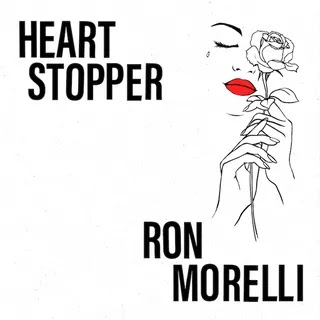Another 55-tune gathering from the UK craftsmanship pop couple is pretty much conclusive, a large number of pearls of spectacular singles from truly outstanding to at any point make it happen.
Indeed, even before he consummated them, Neil Tennant regarded pop singles to the point of despising them. As a columnist at the dearest, presently covered English music magazine Raving successes in the mid '80s, his surveys of the 7-inches were demanding. "We as a whole commit errors," he composed of Culture Club. Laurie Anderson? "I snoozed off." Amusingly, he recommended that the beast snare of In any condition's "You Twist Me Round" was not adequately appealing. Regardless of whether he wasn't necessarily in every case spot on, Tennant was a fan who declined, in SH speech, to be palmed off with pap.
Tennant and his Pet Shop Young men bandmate Chris Lowe have made no less than six extraordinary collections, yet their music never met a more rich storehouse than the single configuration. It suits the medium and the medium suits them. The pair is one of a handful of the demonstrations that actually record B-sides — excellent ones — in spite of these being a jeopardized species in current Western pop. Go searching for a pop B-side now and you frequently won't see as considerably more than accelerated or eased back variants of the headliner, however a solitary delivery in the pre-streaming time was, Tennant noted in 2020, "More like a proclamation: This is where we are currently."
Consequently Crush, a transcending 55-tune remastered singles assortment from the pop craftsmanship sensationalists. As the Pet Shop Young men's fourth most prominent hits discharge, it develops past arrangements — 1991's Discography, 2003's PopArt, and 2010's Definitive — which are currently shortened, dated, or both. Crush's guidelines of confirmation here are severe: just formally delivered singles are incorporated here, and all renditions are the 7" or Compact disc variants overhauled to English radio, with two or three marks. "New York City Kid" is changed out for its more prudent US radio alter, and "How Might You Hope to Be Treated In a serious way?" a 1991 twofold A-side in the UK with "Where the Roads Have No Name," is excluded. At the point when gotten some information about the exclusion as of late, Lowe answered, "It doesn't seem like a solitary."
At times the single variants here are better than the collection alters, 12-inch blends, and other alters, however not consistently. It is likewise conceivable to envision a more nuanced and innovatively sequenced sparkle of Pet Shop Young men's vocation than this ordered overview. However, there is specific worth to this geeky historicism given the poor indexing of single alters by web-based features and that the pop single was Pet Shop Young men's essential approach to arriving at the incredible record-purchasing public. We heard: a killer's line of remarkable singles from one of the most outstanding pop pairs to at any point do it this.
By the mid-'80s, England's Sinister Plants had putrefied into a waste place where there is Thatcherite independence. Under a urbane facade was a snakes' home of covetousness and bad habit where the main thing that made a difference was the money in your pocket and who you'd got in your bed. Which is all to say that Crush opens with "West End Young ladies." The single, a US and UK No. 1 hit, is a compelling stroke of pop virtuoso enrobed in sophisti-jazz and erupted synths, delegated by Tennant's empty snare and a post-"Bliss" pseudo-rap, and it is as yet the most brief illustration of Tennant's capacity to see past exteriors while likewise respecting their sparkle.
Tennant never composed a tune when it very well may be a one-act play; Lowe never made due with a synth when an instrumental hit could do. The singles of their majestic stage, which Tennant characterizes as traversing 1986-88, are among the cleverest to at any point top the English diagrams: as pressed as Paradise on a Friday, with any blank area loaded up with enormous whirrs, plainsong chorales, and heraldic horns. "It's a Wrongdoing" blends hallowed drones in with hair metal camp in a parody of hostile to gay Catholic convention; "How Have I Merited This," a flawlessly grown-up Dusty Springfield joint effort, wavers among resolve and despondency in one of her best exhibitions perpetrated to record. Writer Luke Turner was correct while, expounding on this period, he said that the Young men "pirated strange crimp into the family rooms of millions." In "Lease," Tennant relishes the going back and forth power dynamic of a sugar relationship. "You dress me up, I'm your manikin," he murmurs. "You get me things, I love it." His kept storyteller is no Child Doll with daddy issues: They might try and have every relevant advantage. Also, Tennant tracks down the delicacy inside the plan. "I love you/You pay my lease" may be the best romantic tale the Pet Shop Young men at any point told.
Just a previous church youth could compose this well about pride, jealousy, and desire — how others can stir the most terrible of us — and do it without descriptors (Tennant severely dislikes them). 1990's operatic "Desire" includes a neurotic storyteller who disentangles while holding back to hear their Missing sweetheart's keys in the entryway. "Where did you go, who did you see, you didn't call when you said you would," Tennant sings sharply, among scopes of arrangement that are flawless to the point that they nearly appear to deride his concern. After nine years, after Tennant emerged, Nightlife's "I Don't Have the foggiest idea What You Need Yet I Can't Give It Any Longer" says the peaceful part clearly: "Would he say he is superior to me? Was it your place or his?" And keeping in mind that their extraordinary B-side "The Transporter and His Mate" (excluded here, obviously) provocatively envisions "one man to another" redirections in a rest stop, 1999's grandiose nation number "You Possibly Let me know You Love Me When You're Plastered," subtleties the knottier side of existence with what Quentin Fresh called the "extraordinary dim man" and we would call exchange. The title alone packs a kitchen sink show of contention into a sentence.
They never viewed as their music political. "I could do without individuals extending themselves as significant compassionate figures, which is the propensity for rock characters nowadays," Tennant said in 1989, described in Chris Heath's fundamental book on the Young men, In a real sense. All things considered, you suspect that Tennant disagreed with excellence flagging self images than specialists who truly needed to help. On the great "Being Exhausting," a profoundly private funeral poem to Tennant's companion who kicked the bucket from Helps, the vocalist is both intelligent and discreetly irate that the plague kneecapped so many youthful queers' capacity to dream. Crush's segue from the thoughtfulness of 1990 Way of behaving to the post-rapture rave of 1993's Very recounts a LGBTQ+ people group that expected to grieve as well as delivery. The loud gay dance song of praise "I Wouldn't Regularly Do Something like this" catches it well, as Tennant sings "I want to take all my garments off/Moving to the Custom of Spring." It's tied in with "experiencing passionate feelings for and going crazy," expresses Tennant in the liner notes, yet doing all that to Stravinsky's savage expressive dance expresses something about strange bliss as obstruction, and tracking down boldness to celebrate notwithstanding a background of brutality.
Twenty years after Tennant fumed at dunderheaded pundits on "Yesterday, When I Was Frantic" (basically Pet Shop Young men Versus America in a melody), Super's "The Pop Children" cast their previous life in a rosier light. Over the long run, fixations and dreams take a secondary lounge to finely drawn representations of family life — not exactly the stuff of most pop melodies, substantially less eccentric pop. 2002's "Home and Dry," with its contemplative Johnny Marr guitar and synths that in some way summon an ocean shanty, affectionately subtleties a well deserved harbor toward the finish of a transoceanic schlep. The Xenomania-delivered banger "Did You See Me Coming?" would be a roused second dance tune at a wedding, when the soft stuff is finished with and you simply need to bop with your child.
The collection debilitates somewhat in the remainder of its three plates, yet there are astoundingly few genuine duds. Tennant and Lowe's new singles can equal their popular hits, regardless of whether they very match them, especially the splendidly odd Purcell flip "Love Is a Common Develop," and the Casiotone reggaeton of "Twenty-Something" which, I guarantee, is a cultivator. Best of everything is "Memory Representing things to come," here in its magnificent Stuart Cost single blend, a dance between minor-key despairing and a significant key request for association that likewise carves out opportunity to reference Proust.
"It's in the music," Tennant sings in "Vocal," a destroying rave track from 2013. "It's in the melody." Wasn't it generally? On Crush, Tennant and Lowe's everyman haikus and clobbering songs of praise gather in mile-markers of an unmatched profession. Popular music will continuously be consecrated, yet finding association in an impasse world is likewise sufficiently heavenly to be hymned. The 1997 Eurodance knockout "An Epic occasion" features Tennant in the impossible method of a moony lovefool. "Like Christmas morning when you're a youngster/Concede you love me and you generally did," he sings, in the midst of faithful spells and daze 808s. You can hear him radiating. Sufficiently it's to contact your heart to hear Tennant, sin far enough in the rearview to wink at, so loaded with confidence.



%20Music%20Album%20Reviews.webp)












0 comments:
Post a Comment